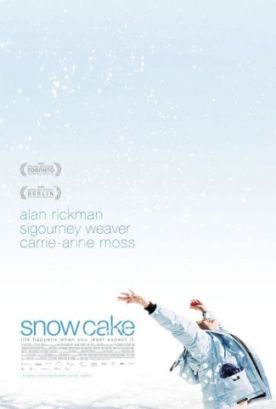Rachel Getting Married
Reviewing Rachel Getting Married in The New York Times, A.O. Scott writes that the movie’s director, Jonathan Demme, “is the kind of filmmaker who gives Hollywood liberalism a good name, and the most striking aspect of Rachel Getting Married is how, without overt ideological posturing, it paints a faithful and affectionate (though hardly uncritical) portrait of blue-state America.” Of course, what he means is not really that this portrait is of “blue-state America,” a geographical entity which has considerably expanded its borders since November 4th to include some territory that Mr Demme might find notably less congenial than upscale suburban Connecticut, where his film is set. Rather, it is of what so much of blue-state America likes to imagine itself as being: a land of rich, cool, intellectual people who are relentlessly and joyously multicultural and morally and politically progressive. Above all, they are filled to the brim with compassion for the world’s many, many victims — among whom they contrive to number themselves.
In spite of the title in which, for once, she is ironically given top billing, the central figure is not Rachel (Rosemarie DeWitt) but her fragile and messed-up sister Kym (Anne Hathaway), who is returning from rehab to the Connecticut manor of their father Paul (Bill Irwin) and his new wife Carol (Anna Deavere Smith), where Rachel’s wedding to Sidney (Tunde Adebimpe), a successful black musician, is about to take place. This is a film about the venting of suppressed feelings and the airing of old grievances, about therapeutic striving in the context of the whole moral economy of the family’s recent history. And yet, apart from the odd oblique comment — like that of Sidney’s mother when she remarks on the comity and ostentatious friendliness between the two families at the rehearsal dinner that “This is how it is in heaven” — it never once mentions the inter-racial aspect of the match. That should tell you all you need to know about its moral self-satisfaction.
In fact, Sidney and his family are pretty much reduced to props. They don’t have any divisive family battles or secrets. As a background to the family drama in which they are otherwise minimally involved, Sidney and his musician friends are constantly strumming on instruments and making informal music, or breaking into some more finished number, ostensibly in preparation for the ceremony. Along with Mr Demme’s frequent resort to the Steadicam, the extreme close-up and the use of ambient noise to suggest a documentary, or cinema vérité style, this emphasis on what I take to be a kind of world music helps to create atmosphere. It also gives the black folks something to do, other than being black, while at the same time serving as a kind of benediction by the less fortunate races of the world upon these highly privileged Americans and their problems.
There is a long-standing rivalry between Rachel and Kym both in general and in particular with respect to their father’s affection, which is involuntarily but disproportionately bestowed upon the ne’er-do-well Kym in preference to the good girl, Rachel. That would be hard enough to cope with by itself, but it is further complicated here by a bit of family history that gradually emerges as the preparations for the wedding unfold to overshadow everything. And here I must issue a spoiler alert. In fact, a double spoiler alert. So stop reading now if you plan to see the film — even though I don’t recommend you do, as the absence of stars above suggests — and think that the minimal suspense involved in waiting to discover what was the family trauma and how and why it happened will substantially add to the pleasures the film has to offer. It might, too, given that those pleasures are so meagre and limited almost entirely to rather voyeuristic one of watching the excellent Miss Hathaway as a neurotic, hollow-eyed junkie.
Actually, there is not much of a secret made of the family trauma, which is that Kym, as a 16-year-old and more or less permanently high on prescription pain-killers, having been asked to babysit for her younger brother, Ethan, got into a car accident which killed him. But, come to think of it, I can’t spoil the other bit of the withheld information because it is never actually revealed in the film itself. At one point, Kym confronts her mother, Abby (Debra Winger), since divorced from her father and herself remarried, on just this question: “What were you thinking?” she asks her. “Why would you leave a drug addict to watch your son?” But mom has no answer to give, beyond a slap across the face, and if Kym has any suspicions about the answer, she doesn’t share them with us. Maybe mom just hadn’t wanted to know that her daughter was a drug addict.
But, reading between the lines, I would guess that there is another family secret not being revealed here. Perhaps mom was having an affair with the man who is now her husband. Generally speaking, Miss Winger’s performance is meant to suggest a woman whose own happiness takes precedence with her over that of her children. But Mr Demme and his screenwriter, Jenny Lumet (daughter of Sidney), are content merely to make the suggestion that Ethan’s death might be really Abby’s fault — and in a way that might be particularly shaming to traditional ideas of what it means to be a wife and mother. If so, the family might be covering up the truth, hiding it even from themselves, and allowing Kym alone to bear the burden of guilt — along with its various social, amatory and pharmacological consequences — for everyone’s self-indulgence. It might be their way of refusing anything less than total commitment to the therapeutic doctrine of personal self-fulfilment so much beloved of “Hollywood liberalism.”
All this is entirely hypothetical, of course. But if the family is not hiding from the truth, the movie certainly is — and probably has to do so if its portrait of “blue state America.” is to remain more “faithful and affectionate” than it is critical.
Discover more from James Bowman
Subscribe to get the latest posts to your email.







